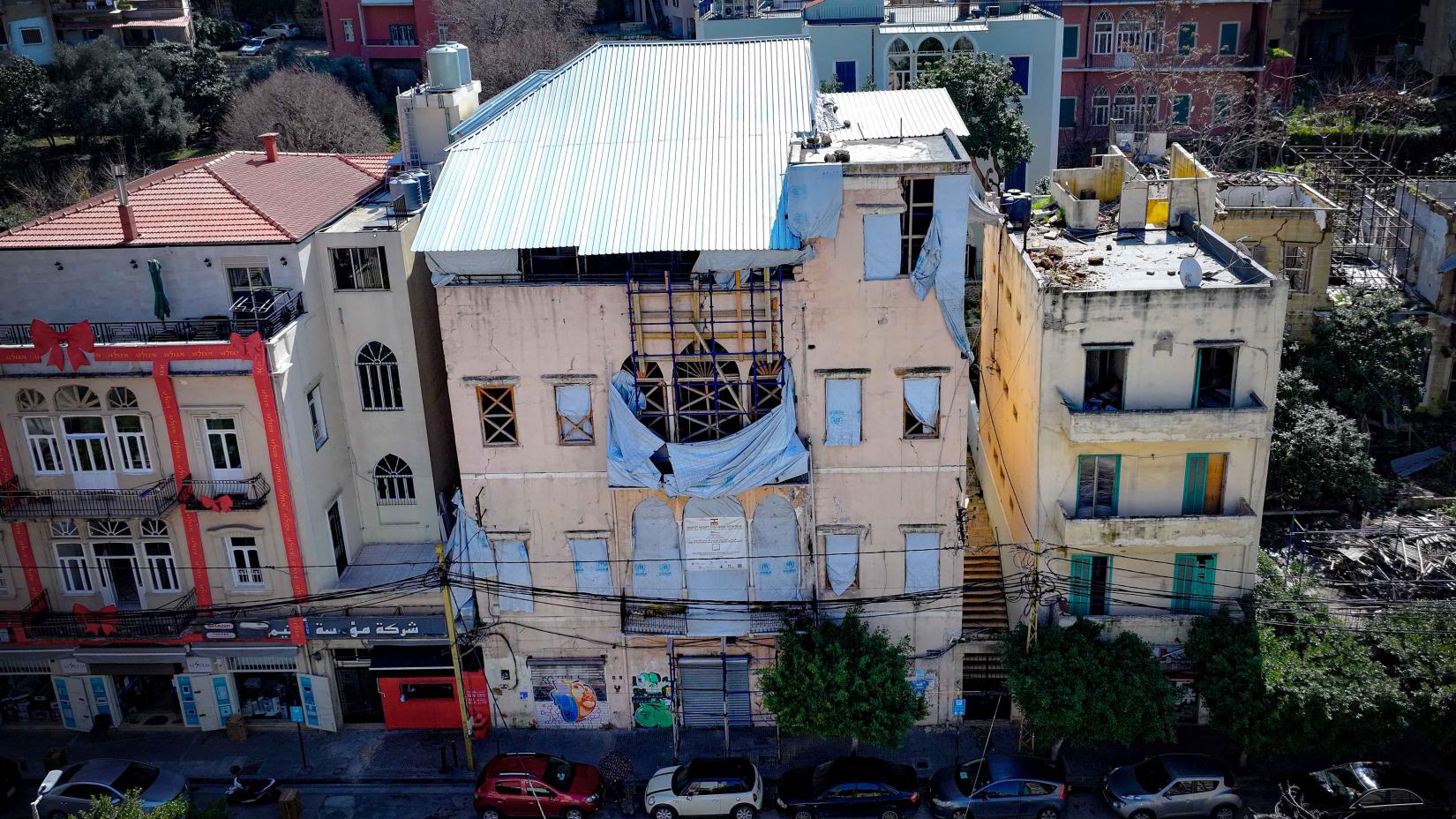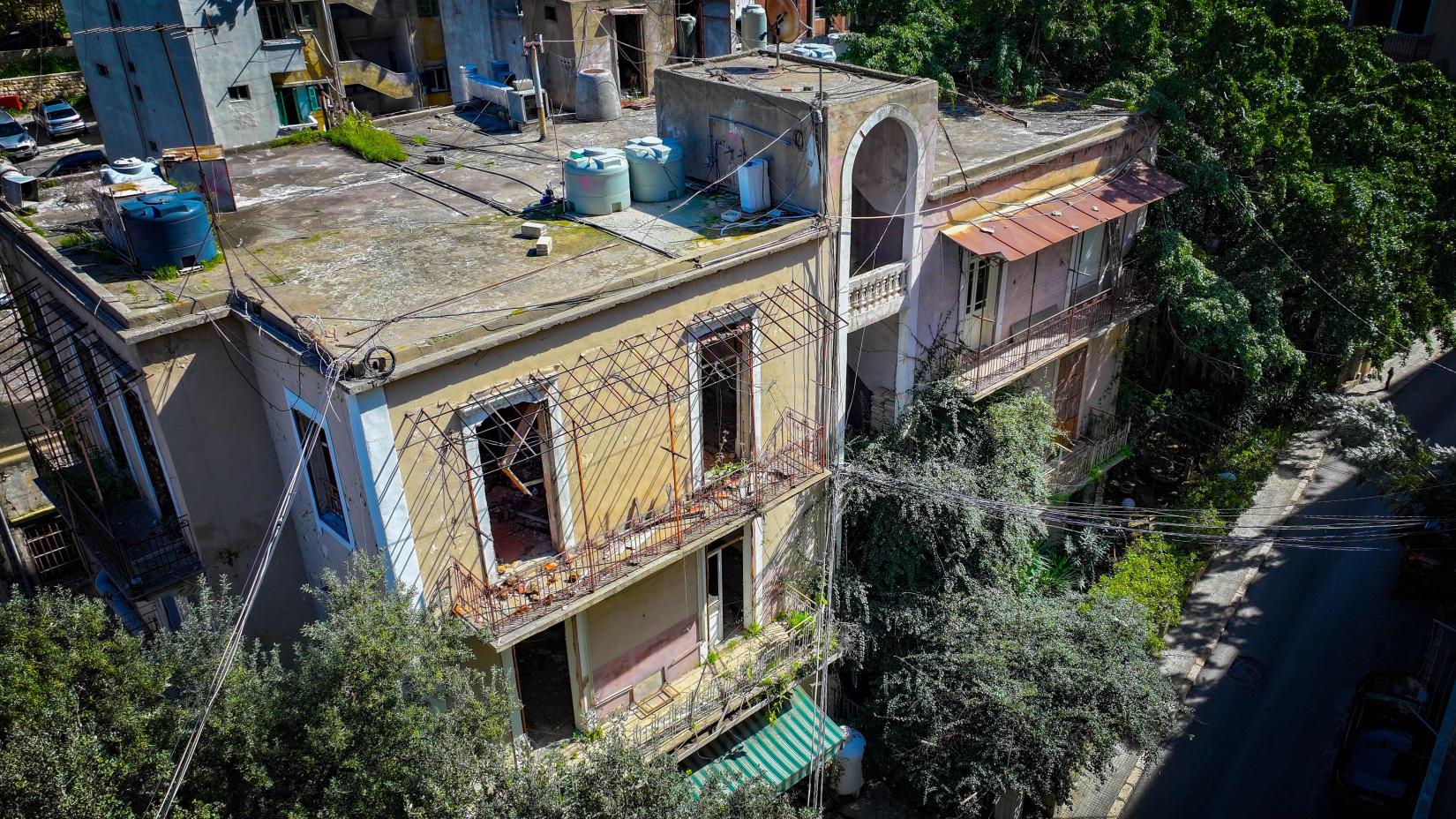UN-Habitat initiates rehabilitation of four residential heritage buildings under BERYT project
27 February 2024
- Beirut, 27 February 2024: The United Nations Human Settlements Programme (UN-Habitat) has begun physical rehabilitation works on an initial batch of four residential buildings of heritage value that were severely damaged by the Beirut Port explosion. This activity is part of the Beirut Housing Rehabilitation and Cultural and Creative Industries Recovery project, also known as BERYT, funded by the Lebanon Financing Facility, a multi-donor trust fund administered by the World Bank.

The housing recovery and rehabilitation component of the BERYT project is centred on restoring the liveability, safety and architectural heritage of several residential buildings within a 5km radius of the epicentre of the Beirut Port explosion.
The four buildings undergoing rehabilitation are namely buildings 679, 694, 710, and 425 in Rmeil. They are among a list of buildings that have been assessed and are under design. To preserve their historical identity, the original architectural designs of these buildings are being used as a reference. Furthermore, rehabilitation works will use construction materials and techniques that seek to restore the buildings’ original character.
The residential buildings to undergo rehabilitation were selected based on an extensive multifaceted selection process. The process assesses the level of structural damage and heritage value; the housing, land and property ownership status; and future usage plans of owners once the building is rehabilitated. The selection also takes into consideration the socioeconomic vulnerabilities of the building residents and households.

Under the project, 15 additional buildings are expected to be contracted for renovation until June 2025. These buildings are undergoing final verifications and assessments and will be announced in due course.
Through the rehabilitation of these buildings, BERYT aims to bring people who are still displaced, back home, improve the quality and affordability of Beirut’s heritage housing stock, lay the foundation for longer term housing reform and recovery, and propose tangible solutions to the complex housing, land and property landscape in the city, while reviving the urban cultural and social vibrancy of Beirut.
-ENDS-
About the Beirut Housing Rehabilitation and Cultural and Creative Industries Recovery – the BERYT Project
The Beirut Housing Rehabilitation and Cultural and Creative Industries Recovery Project, BERYT, is a two-component project led by UN-Habitat and funded by the Lebanon Financing Facility (LFF) a multi-donor trust fund administered by the World Bank. The BERYT project will rehabilitate severely damaged residential buildings of heritage value and provide grants to creative and cultural actors in the areas most heavily affected by the Port of Beirut blast, while promoting an urban recovery approach. UN-Habitat oversees the implementation of the housing recovery and rehabilitation activities, while UNESCO oversees the implementation of the cultural and creative industries revitalization component of the project.
About the United Nations Human Settlements Programme (UN-Habitat)
UN-Habitat works in over 90 countries supporting people in cities and human settlements for a better urban future. Working with governments and local partners, its high impact projects combine world-class expertise and local knowledge to deliver timely and targeted solutions. The 2030 Agenda for Sustainable Development includes a dedicated Goal on cities, SDG 11 – to make cities inclusive, safe, resilient and sustainable.
About the Lebanon Financing Facility (LFF)
The Lebanon Financing Facility (LFF) is a multi-donor trust fund administered by the World Bank to kickstart the immediate socio-economic recovery of vulnerable populations and businesses affected by the Port of Beirut explosion of August 2020 and to support the Government of Lebanon catalyze reforms and prepare for medium-term recovery and reconstruction. The LFF is kindly supported by the governments of Canada, Denmark, France, Germany, Norway and by the European Union.


